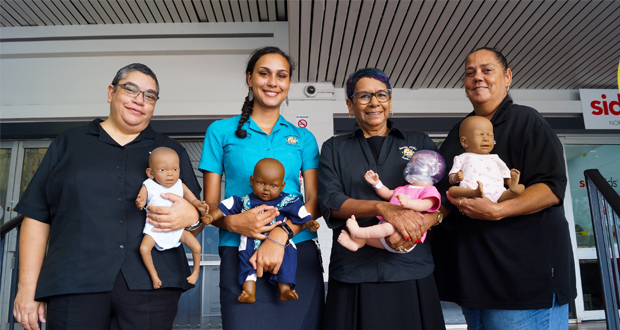Last year marked a decade that the Australian Nurse-Family Partnership Program (ANFPP) was launched on the lands of the Arrernte people. A health initiative of the Australian government funded as part of the Closing the Gap Strategy, it aims to empower and inform first-time, low-income Aboriginal and Torres Strait Islander mothers, while boosting outcomes for their children through a registered nurse-led visiting program, which provides culturally appropriate assistance and support from pregnancy through to toddlerhood.
Over two years, the Charles Darwin University College of Nursing and Midwifery will now take the lead in providing workforce training, technical support and professional support activities to health providers to advance the program’s mission.
The team will also be conducting research work: collecting, analysing and reporting on ANFPP performance of duties and outcomes data.
“Our intention is to bring together nurses, family partnership workers and other implementing site staff together to work together to ensure the ANFPP is contemporary, responsive and contextualised to each individual woman and community,” said CDU Professor of Primary Healthcare and ANFPP Director Sue Kruske.
The team working on the national service “consists of strong Indigenous leadership,” said Indigenous public health researcher Associate Professor Sandra Campbell, who will lead the data team.
“The highly experienced team have careers that span decades working in Indigenous maternal and child health and will ensure that information is provided to the implementing sites in a way that is accessible and meaningful,” Dr Campbell said.
The ANFPP was adapted from the US Nurse Family Partnership program, and is delivered by 12 organisations across four states and two territories, including several sites in remote communities. A 2018 study into the program found that its delivery was at times hindered by the complicated and diverse circumstances of clients – with many experiencing extreme poverty, insecure housing and domestic violence.
It was the conclusion of the study that “modifications to the Australian Nurse-Family Partnership Program model to reflect the specific complexities and adversities faced by the client populations is important for effective service delivery and to maximise the chance of meeting program goals of improving the health and well-being of Australian Aboriginal mothers and their infants”.
Do you have an idea for a story?Email [email protected]
 Aged Care Insite Australia's number one aged care news source
Aged Care Insite Australia's number one aged care news source

